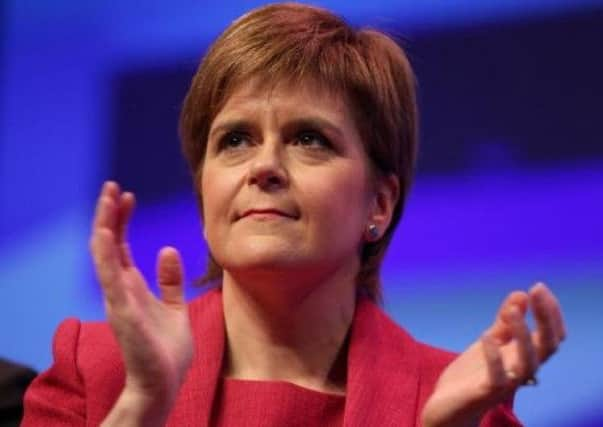Brian Monteith: Get your hand out of our pocket and cut tax Nicola


Now that the powers to raise or reduce many of the everyday taxes Scots face reside in Holyrood, our politicians cannot simply give services away for free and expect England to pick up the bill when the English taxpayers do not enjoy those same services themselves. This reality check is also a good thing.
For years, and in countless election campaigns, Nicola Sturgeon refused to support the extra taxation required by her policies because she knew she could just pass the bill on.
Advertisement
Hide AdAdvertisement
Hide AdThat option is now being closed off. Now she has released a consultation on how to increase taxes as the taxpayers’ money runs out. She calls this “progressive”.
Meanwhile, the Chancellor of the Exchequer delivers his budget next week, and I expect it to contain some good news about tax revenues that mean the deficit is falling faster than expected.
“Despite Brexit” is the phrase of choice in organs like the BBC, Sky News, The Guardian and The Times but the reason the word “despite” has been teamed up with “Brexit” is because the economy has not turned out the way the doom merchants told us.
The Treasury said if we voted for Brexit we would have an immediate recession and within a year 500,000 people would have lost their jobs.
Advertisement
Hide AdAdvertisement
Hide AdIn fact the economy has grown 6.4 per cent more than its predictions, created 317,000 more jobs and seen tax revenues climb in September by 5.4 per cent against the previous year.
This means the Chancellor will be able to get the deficit down further and give more help where he judges he can now afford it.
One of the reasons our economy is recovering is because tax incentives to keep more of what we earn encourage us to be more productive and work harder.
Since the election of the Tory-Lib Dem coalition and then Tory Governments from 2010, tax cuts for the lowest paid have reduced income inequality to the lowest level in 30 years.
Advertisement
Hide AdAdvertisement
Hide AdThe top 0.01 per cent of earners now pay four per cent of total income tax and the top one per cent pay 28 per cent – while the lowest-paid half of the workforce contributes less than 10 per cent of total income tax.
The Scottish Government’s consultation on taxation seeks to raise taxes but it will simply drive talent south to England or abroad. What is needed is for Scotland to be the best destination to work and play; Scotland should look to attract talent not drive it away.
To say all of this is not to attack the idea of independence, it is quite the reverse. For if Scots want our nation to become independent then they must face up to the fact that no one, not the English taxpayer nor the EU taxpayer, will pay for expensive services and benefits in Scotland that they don’t get to enjoy.
An independent Scotland will have to be prudent, and have to live within its means.
Advertisement
Hide AdAdvertisement
Hide AdI am no nationalist, for I believe that being Scotland and British is about more than money. Indeed I welcome the times when Scotland is able to help our brothers and sisters in the other regions of the UK by sharing in the wealth we generate when they are down on their luck.
Likewise I welcome the help we are given by successful regions such as London and its doughnut of southern counties when we need it. That is what true solidarity means.
We need to learn from the experience of recent years and start to cut taxes to provide incentives that build a more productive Scottish economy that generates larger tax revenues.
That’s what I call progressive.